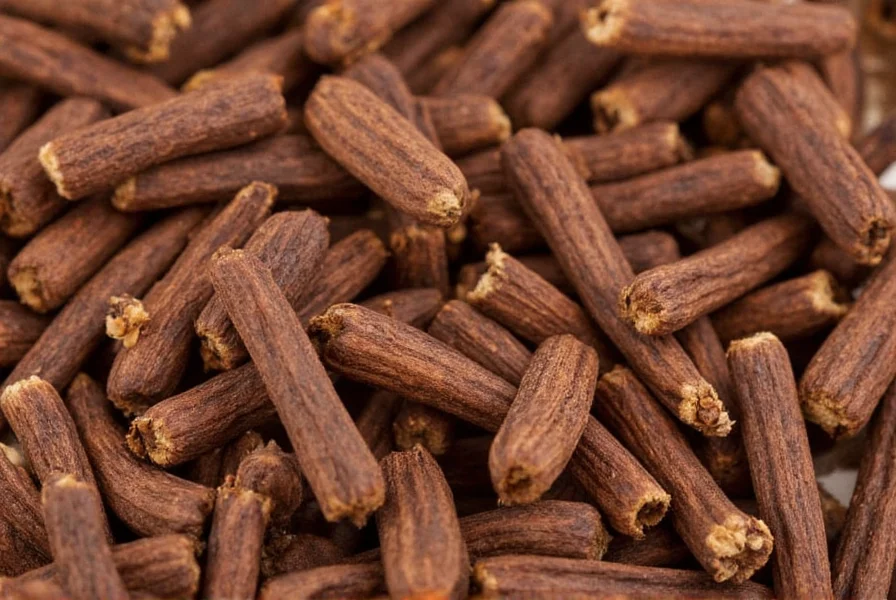When evaluating what does clove taste like, you'll immediately notice its powerful impact despite the spice's small size. This distinctive profile makes cloves one of the most recognizable spices in culinary applications worldwide. Understanding clove's flavor characteristics is essential for using it effectively without overwhelming your dishes.
Breaking Down Clove's Complex Flavor Profile
Clove's taste isn't singular but rather a layered experience that unfolds in stages. When you bite into a whole clove (though this isn't recommended in finished dishes), the flavor development follows a specific pattern:
- Initial impact: Sharp, almost antiseptic warmth that spreads across the palate
- Mid-palate: Pronounced bitterness balanced by subtle caramel-like sweetness
- Mouthfeel: Noticeable numbing sensation, particularly on the tongue
- Finish: Long-lasting warm aftertaste with hints of citrus and wood

What Does Clove Taste Like Compared to Common Spices?
Many home cooks wonder how clove flavor compares to more familiar spices. Understanding these differences is crucial for proper usage in recipes:
| Spice | Primary Flavor Notes | Intensity Level | Best Culinary Pairings |
|---|---|---|---|
| Clove | Warm, bitter, slightly sweet, medicinal | Very High (use sparingly) | Apple, orange, cinnamon, allspice, pork |
| Cinnamon | Sweet, woody, warm | Moderate | Sugar, chocolate, coffee, dairy |
| Nutmeg | Warm, nutty, slightly sweet | Moderate to High | Cheese, potatoes, cream sauces, spinach |
How Form Affects Clove Flavor: Whole vs. Ground
What does clove taste like when used in different forms? The answer significantly impacts your cooking results:
Whole cloves release their flavor slowly during cooking, providing a more rounded, integrated warmth. They're ideal for braises, stews, and mulled beverages where extended cooking time allows gradual flavor infusion. Always remove whole cloves before serving to prevent overwhelming bitterness from accidental bites.
Ground cloves deliver immediate, more intense flavor but lose potency faster. What does ground clove taste like compared to whole? It has a flatter profile with less nuanced complexity but works well in baked goods where quick flavor integration is needed. Use approximately half the amount of ground cloves versus whole in recipes.
Regional Variations in Clove Flavor Profiles
Not all cloves taste identical. The terroir where cloves are grown creates subtle but important flavor differences that affect what does clove taste like in your cooking:
- Zanzibar cloves: Considered premium with balanced warmth and sweetness, ideal for delicate applications
- Indonesian cloves: Higher eugenol content (up to 90%), creating more intense heat and pronounced medicinal notes
- Madagascar cloves: Slightly milder with more pronounced sweet undertones, perfect for baking
How Cooking Method Changes Clove's Taste Experience
The way you incorporate cloves dramatically affects their flavor contribution. Understanding what does clove taste like in different cooking scenarios prevents common mistakes:
In slow-cooked dishes like stews or braises, cloves mellow and integrate, providing background warmth without dominance. The extended cooking time allows the harsher bitter notes to soften while preserving the characteristic warmth.
In baked goods, cloves contribute to the signature flavor of holiday treats like gingerbread and pumpkin pie. What does clove taste like in baking? It adds depth that complements other warm spices without being individually identifiable when properly balanced.
For beverages like mulled wine or chai, cloves provide the distinctive warming backbone. What does clove taste like in mulled drinks? The liquid medium allows for perfect flavor extraction without the harshness that can occur in solid foods.

Avoiding Common Clove Mistakes: When Flavor Goes Wrong
Many cooks struggle with what does clove taste like when used improperly. The most frequent error is overuse, which creates an unpleasant medicinal quality that dominates the dish. Professional chefs recommend:
- Using no more than 3-4 whole cloves per pound of meat in stews
- Limited to 1/8 teaspoon of ground cloves per recipe for baked goods
- Always removing whole cloves before serving
- Pairing with complementary flavors like orange zest or allspice to balance intensity
Stale cloves present another common issue. Properly stored whole cloves maintain potency for 3-4 years, while ground cloves lose flavor within 6-12 months. Signs of stale cloves include diminished aroma, muted flavor, and failure to produce the characteristic numbing sensation.
Culinary Applications Across Global Cuisines
Cloves play distinctive roles across world cuisines, demonstrating how what does clove taste like can be adapted to different culinary traditions:
In Indian cooking, cloves are fundamental to garam masala, where they contribute warming complexity without dominating. The classic dish biryani relies on cloves for its signature aromatic depth.
Chinese five-spice powder features cloves as one of its essential components, where what does clove taste like provides the necessary warmth to balance star anise and Szechuan pepper.
In European traditions, cloves define holiday flavors in dishes like German Lebkuchen and English Christmas pudding. The spice's ability to enhance fruit flavors makes it indispensable in apple-based desserts and mulled ciders.
Conclusion: Mastering Clove's Powerful Flavor
Understanding what clove taste like is essential for any cook looking to expand their spice repertoire. This potent spice offers a unique combination of warmth, bitterness, and subtle sweetness that can elevate dishes when used judiciously.
Remember that cloves work best as supporting players rather than stars in most culinary applications. Their intense flavor means a little goes a long way, but when properly balanced, they create depth and complexity that few other spices can match. Whether you're exploring what does clove taste like in traditional recipes or experimenting with new flavor combinations, respecting this spice's power will lead to more successful culinary results.
Frequently Asked Questions
What does clove taste like compared to cinnamon?
Clove has a much more intense, medicinal warmth compared to cinnamon's sweeter, woodier profile. Cloves are significantly more potent, with a noticeable bitter component and numbing effect that cinnamon lacks. While cinnamon is generally used in larger quantities, cloves should be used sparingly as they can easily overpower a dish.
Is clove sweet or bitter?
Clove has both bitter and sweet elements in its flavor profile. The dominant characteristic is a strong, warm bitterness, but as the initial intensity subsides, subtle sweet, almost caramel-like notes emerge. This complex interplay of bitter and sweet is what makes cloves so valuable in spice blends and baking.
Why do cloves taste medicinal?
Cloves taste medicinal because they contain 70-90% eugenol, the same compound used in dental cement and some over-the-counter toothache remedies. This high concentration of eugenol creates the characteristic antiseptic, medicinal quality that defines clove's flavor profile.
What does clove taste like in cooking?
In cooking, cloves provide a deep, warming background note rather than a dominant flavor. When used properly, they add complexity without being identifiable as 'clove' - more of a warm, spicy undertone. Overuse results in an overpowering medicinal taste that can ruin a dish.
How much clove should I use in recipes?
Use cloves sparingly: 3-4 whole cloves per pound of meat in stews, or 1/8 teaspoon of ground cloves per recipe for baked goods. Remember that whole cloves release flavor slowly during cooking, while ground cloves have immediate impact. Always remove whole cloves before serving to prevent overwhelming bitterness from accidental bites.










 浙公网安备
33010002000092号
浙公网安备
33010002000092号 浙B2-20120091-4
浙B2-20120091-4